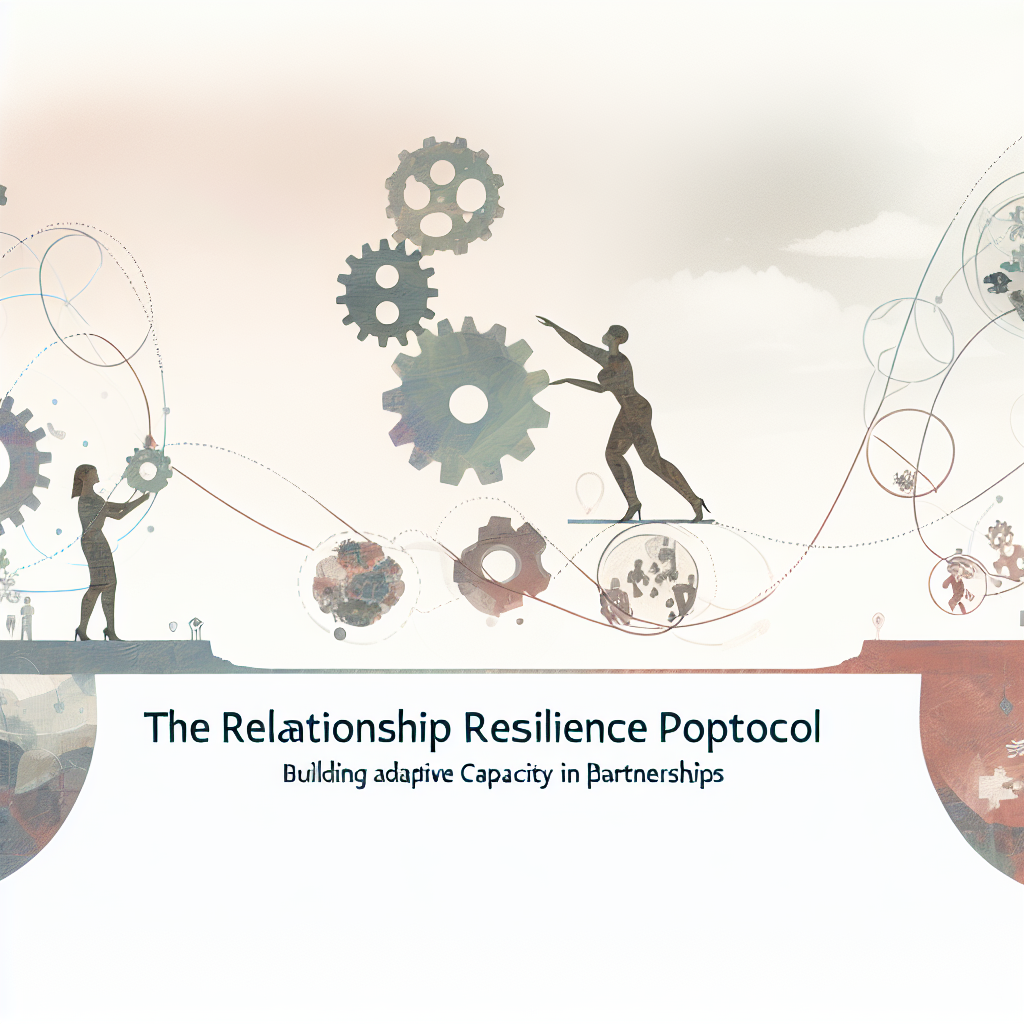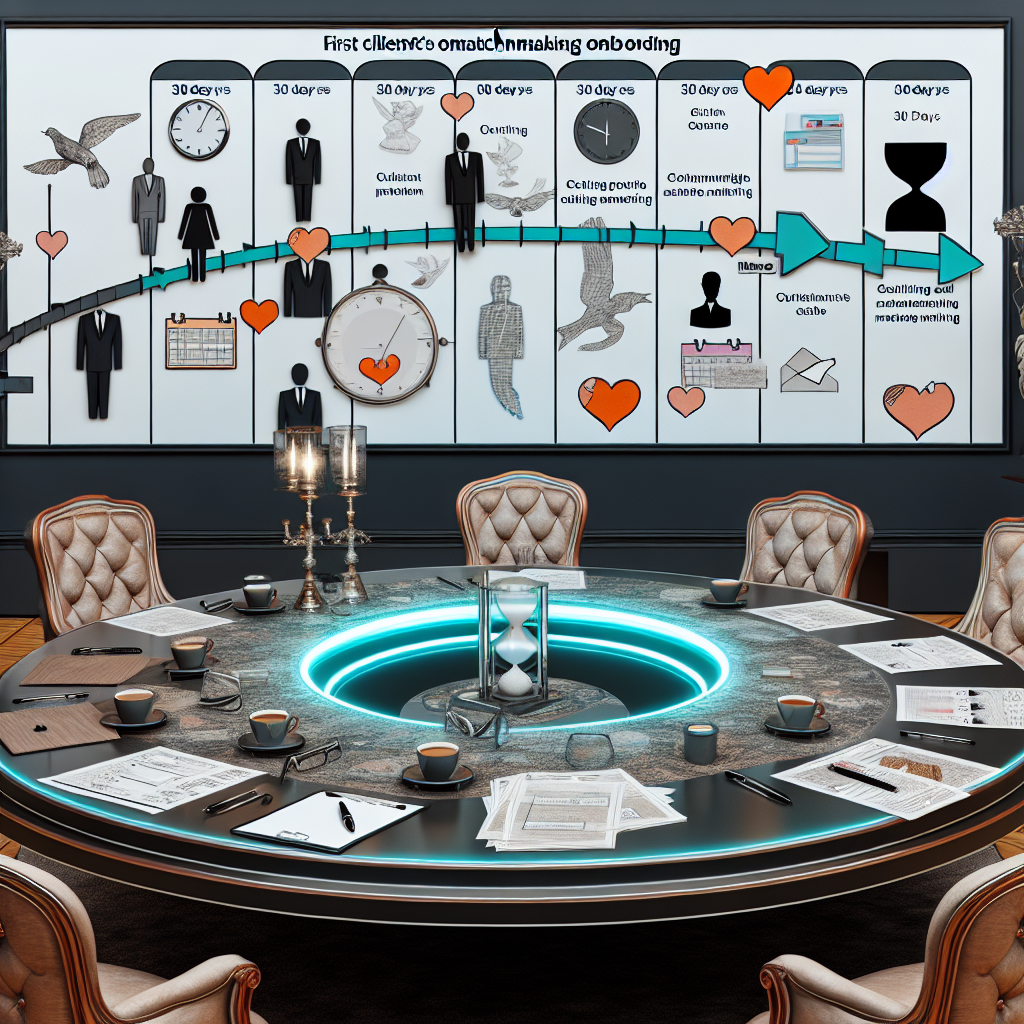💞 The Relationship Resilience Protocol: Your Roadmap to a Stronger, Smarter Love
In today’s fast-paced, digitally driven world, romantic relationships are experiencing new pressures and transformations at an unprecedented rate. From apps and online matchmaking to evolving gender roles and expectations for emotional intelligence, modern couples face a dynamic environment that demands adaptability, clear communication, and mutual support.
Enter the concept of relationship resilience—a critical, yet often underexplored aspect of lasting love. At its core, relationship resilience refers to a couple’s ability to endure, adapt, and grow stronger through life’s inevitable challenges.
The Relationship Resilience Protocol is a framework that emphasizes emotional flexibility, mutual problem-solving, empathy, and adaptive capacity between partners. Whether you’re a newly dating couple in your 20s or navigating a second chapter of love in your 60s, this protocol places value on learning to weather both internal disagreements and external stressors—financial upheaval, career shifts, parenting challenges, or health crises—without derailing the relationship.
🔬 Science-Backed Secrets: The Foundations of Relationship Resilience
The concept of resilience in relationships is increasingly supported by psychological and medical research. The American Psychological Association (APA) defines resilience as a process of “bouncing back” from adversity—but when it comes to love, it’s all about bouncing back *together*.
Multiple studies underscore the importance of resilience as a defining factor in long-term relational satisfaction and emotional health.
One foundational model is the ABC-X Model of family stress and adaptation by Reuben Hill. It explores how couples handle pressure by considering:
– **A**: The stressor itself
– **B**: The couple’s resources
– **C**: The couple’s perception of the stressor
– **X**: The resulting crisis (or lack thereof)
Couples with access to emotional, social, and psychological support are far better equipped to navigate challenges without falling into crisis.
John Gottman’s groundbreaking research shines a spotlight on what makes marriages work. His key findings:
– Couples who regularly use “repair attempts”—those small gestures to de-escalate conflict—are significantly more likely to stay happily together.
– The “Magic Ratio” of 5:1 means five positive interactions for every one negative one during disagreements can deeply influence relationship stability.
Meanwhile, data from the University of Denver’s Center for Marital and Family Studies reveals that emotional validation during tough times increases adaptability and relationship satisfaction. A 2014 *Journal of Marriage and Family* study found that emotional support during adversity boosts trust and fosters long-term commitment.
Looking even deeper, neuroscience tells us:
Loving behaviors activate parts of our brains linked to bonding, reward, and calm. These neurological responses don’t just feel good—they literally help fortify your emotional connection during life’s storms.
Therapeutically, Emotionally Focused Therapy (EFT), developed by Dr. Sue Johnson, emphasizes emotional bonding. It helps couples reframe distress signals not as attacks or failures—but as deep calls for connection and closeness.
All of this empirical evidence forms the foundation of the Relationship Resilience Protocol—a methodical, science-based approach that helps couples flex emotional muscles, solve problems together, and become more emotionally solvent together.
💪 Love Built to Last: Why Resilience Is the New Relationship Goal
Relationship resilience is not a trend—it’s the core of deep, lasting love in the modern world. Whether you’re 18 or 80, developing the ability to respond—not react—to life’s tests as a team can transform your connection from fragile to flourishing.
This protocol doesn’t promote unrealistic perfection—it champions real-life tools like:
– Repairing instead of blaming
– Listening instead of defending
– Pausing instead of reacting
– Growing together instead of growing apart
Resilient relationships continuously turn pain into purpose and conflict into connection. They support both individuals’ growth, allowing each person to bring their best selves into the partnership while staying anchored in mutual goals and respect.
By practicing simple, science-backed habits, couples can transform even their lowest moments into opportunities for bonding, maturity, and joy. With relationship resilience, adversity doesn’t break your love—it builds it.
📚 References
– American Psychological Association. “The Road to Resilience.” [https://www.apa.org/helpcenter/road-resilience](https://www.apa.org/helpcenter/road-resilience)
– Gottman, J. “What Predicts Divorce?” [https://www.gottman.com](https://www.gottman.com)
– Hill, R. (1949). *Families under Stress: Adjustment to the Crises of War Separation and Reunion.*
– Johnson, S. (2008). *Hold Me Tight: Seven Conversations for a Lifetime of Love.* [https://iceeft.com/for-clients/hold-me-tight/](https://iceeft.com/for-clients/hold-me-tight/)
– Karney, B. R., & Bradbury, T. N. (1995). “The longitudinal course of marital quality and stability: A review of theory, method, and research.” *Journal of Marriage and the Family*, 57(3), 424–439. [https://doi.org/10.2307/353697](https://doi.org/10.2307/353697)
– Williamson, H. C., et al. (2014). “Emotional support and the regulation of stress in marriage.” *Journal of Marriage and Family*, 76(1), 126–138. [https://onlinelibrary.wiley.com/doi/full/10.1111/jomf.12072](https://onlinelibrary.wiley.com/doi/full/10.1111/jomf.12072)
Want to build a relationship that rises through the rough patches and shines in the everyday moments? Save this article, share with your partner, and begin your journey using the Relationship Resilience Protocol today!
Concise Summary:
The Relationship Resilience Protocol is a science-backed framework that helps couples develop emotional flexibility, mutual problem-solving, and adaptive capacity to navigate life’s challenges without derailing their connection. By practicing simple habits like repairing instead of blaming and listening instead of defending, couples can transform even their lowest moments into opportunities for bonding, maturity, and lasting love.

Dominic E. is a passionate filmmaker navigating the exciting intersection of art and science. By day, he delves into the complexities of the human body as a full-time medical writer, meticulously translating intricate medical concepts into accessible and engaging narratives. By night, he explores the boundless realm of cinematic storytelling, crafting narratives that evoke emotion and challenge perspectives. Film Student and Full-time Medical Writer for ContentVendor.com




